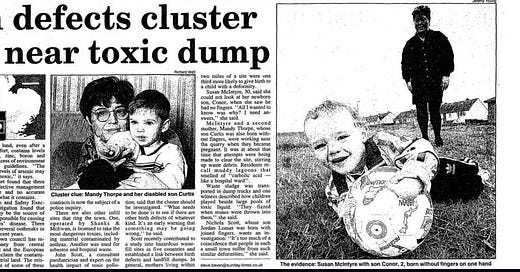Let me cast my mind back if you will, it is about 25 years ago now and so my memories are pretty hazy, but I do have an uncanny memory for a story – for other people’s lives at least. Ernest Hemingway warned about this when he was a war reporter, that journalists who tell the stories of others risked forgetting the details of their own lives. This has definitely happened to me.
But, in this memory, I am around 23 years old, newly married, and I am sitting in a squashy armchair with my shorthand pad in my hand, my pen poised and one of those old ‘brick’ phones somewhere in my handbag. The house is clean, small and cosy, studio photos of two boys smile down from the walls and toys are stacked in corners of the room, tidied away perhaps especially for this London magazine journalist’s visit.
It is the late nineties or early 2000s and I have travelled to a Northamptonshire town to interview a woman called Susan McIntyre. After our chat she is going to introduce me to a few other women in a…



